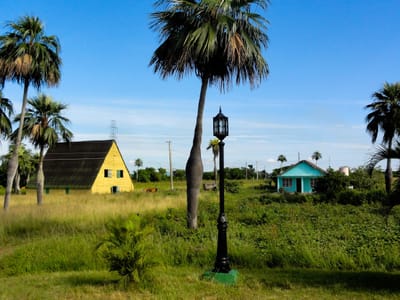About

With approximately one billion people lacking access to electricity in the world, nothing short of a socio-technical transformation is required to reach the objectives of universal electrification by 2030. Sub-Saharan Africa, with more than 600 million lacking access to electricity, requires special attention. Although off-grid and decentralised solutions are expected to play a significant role, and mini-grids are assumed to be a game changer for rapid, cost-effective, pro-poor, and universal electrification globally, the green mini-grid sector has not grown rapidly. Progress has been patchy between and within countries, across rural areas and informal urban settlements and between high and low-income communities. Among the barriers to scaling up mini-grids in Africa are lack of a mini-grid specific regulatory framework, unproven business models, demand uncertainty, limited access to finance and lack of capacity.
The main aim of this project is to improve our understanding of the sustainability, inclusiveness and governance of mini-grids in general, and those in Sub-Saharan Africa in particular, by developing an improved evidence base and a multi-dimensional appreciation of issues and challenges that can support better decision-making for universal electrification globally. The project has been conceptualised through a collaborative process involving a team of UK-based researchers and research teams from four Sub-Saharan Africa (SSA) countries (namely Nigeria, Senegal, Kenya and Tanzania).
We have identified four main research questions: 1) Which business models have succeeded to deliver financially and technically viable mini-grids in SSA? 2) Who and what have been the key beneficiaries of mini-grids in the case study countries and in what way? 3) Who drives or hinders the proliferation and the speed of adoption of mini-grids in East and West Africa? 4) What governance, regulatory and policy frameworks for decentralised systems of electricity provision exist in each case study country, how successful have they been and how do they differ?
Our analytical approach sits at the intersection of human geography, development studies, engineering and sustainability transitions. The research is necessarily inter-disciplinary in order to understand complex interactions between financial, technological, political, socio-economic and cultural factors. We plan to develop a political economy framework and a sustainability framework to analyse electricity access in developing countries, with a particular focus on mini-grids. Our case studies (two from West Africa, Nigeria and Senegal and two from East Africa, Kenya and Tanzania) present fascinating grounds for comparison and have been selected on the basis of their diversity of governance models and differing levels of decentralised electricity provisions within their specific national and sub-national contexts.
The work is organised into seven work packages (WPs) and will be delivered over a period of 36 months. WP1 undertakes 1) an extensive review of literature on mini-grids, sustainability, governance, political economy and inclusiveness and 2) the development of the political economy and sustainability analytical frameworks. WP2 focuses on building the evidence base by collecting relevant information on mini-grids and developing a mini-grids database for the four countries of our study. The database will then be used to analyse the status of mini-grids in each case study country. WPs 3, 4 and 5 are devoted to analysis of the sustainability, inclusiveness and governance of mini-grids, at the level of each country and also including cross-country comparison. WP6 is devoted to communication, dissemination and impact generation activities while WP7 is devoted to project management.
The novelty of the project lies in its evidence-based approach to uncover challenges of mini-grids and to develop strategies for successful businesses that are sustainable and inclusive.


